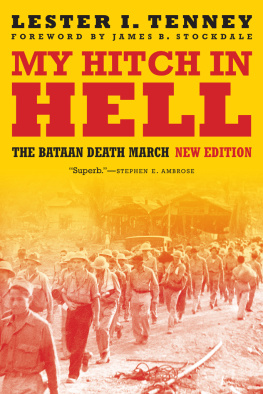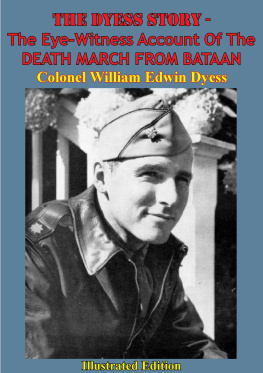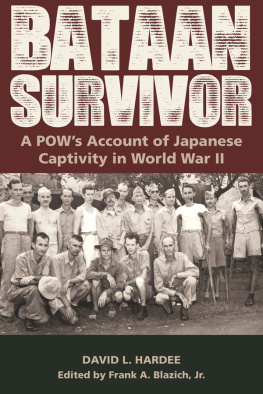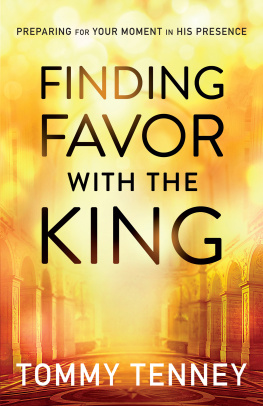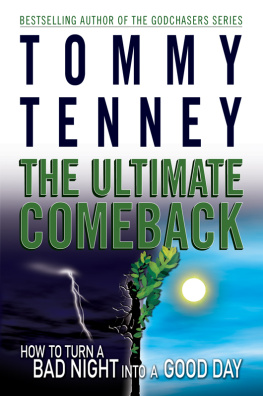1995 by Potomac Books, Inc. Introduction and epilogue 2018 by the Board of Regents of the University of Nebraska
All rights reserved. Potomac Books is an imprint of the University of Nebraska Press.
The publisher does not have any control over and does not assume any responsibility for author or third-party websites or their content.
I NTRODUCTION
Today only three or four who suffered the brutalities of the Bataan Death March are still alive. With the first printing of this book, many people became aware of the part we played seventy-four years ago in World War II. But those who fought and died, and those who fought and lived, deserve to have the full and accurate story told, the true details of our sacrifice for our country and the worlds freedom. Since the first publication of My Hitch in Hell in 1995 much has happened, and important information needs to be added to our story. That is the reason behind this revised edition.
Over twenty years ago, I thought publishing an account of my experience would put my suffering behind me and allow me to go on with my life. And yet, at that time, I still had many unanswered questions about what happened to us in Bataan. It was clear that many important things were still hidden from us and from the public, by both the American and Japanese governments.
In 1995 the Japanese appropriated $16 million for all World War II POWS to visit Japan with their families in order to promote peace and friendship... all POWS except the specifically excluded Americans. I spent years writing to congressmen, senators, the president, and ambassadors, trying to find out why we had been excluded. Over fifteen years, I wrote hundreds of letters but received nothing in return. It wasnt until 2008 that I finally received any response.
Why did pows from Britain, Australia, New Zealand, the Netherlands, Canada, Norway, and Indonesia receive reparations of $15,000 to $25,000 from their respective governments for their suffering, while we, the American pows, received only $1.00 a day for missed meals and $1.50 a day for our labor? We received nothing for our pain and sufferingnot even the Red Cross funds that had been appropriated for us. Why?
Why, immediately after our liberation from the Japanese camps, did our government make us sign a document saying we could be court-martialed if we discussed anything about our imprisonment and enslavement without getting the War Departments permission? Why were we being asked to keep silent about our ordeal?
What did General King risk in ordering the troops on Bataan to surrender to the Japanese? Had his order come directly from MacArthur? What was the full story?
What was being printed in Japanese textbooks about World War II and our torture and enslavement for the private enrichment of Japans biggest corporations? Why did the countrys young people know nothing about this part of their history? What did they know about Unit 731s medical experimentations on the POWS ?
If the United States had not ended the war in the Pacific with the dropping of atomic bombs on Hiroshima and Nagasaki but had invaded Japan by land instead, what was the immediate plan of the Japanese for us, their prisoners of war?
You will find answers to those questions in the epilogue to this edition.
It took a concentrated effort to get those answers. I went to the National Archives in Washington DC to read previously sealed American war documents, newly opened to the public, and also Japanese papers that had been captured, translated, and released. Before, I only had a piece of the total picture. Now I feel I have a broader understanding of what happened, and I feel I have an obligation to present that fuller picture. History cannot be preserved when a country rewrites it to satisfy its own agenda. The truth needs to be preserved and remembered.
Please understand: my goal in presenting these facts is not to cause more anger, vengeance, or hatred in the world. We have had enough of that. We who fought in The Big War thought it would be the war to end all wars; sadly, it was not. Today the same underlying prejudices, fears, and imperialism that caused that warand all othersare still rampant. What I have come to understand after living ninety-six years on this planet is that the only way to bring lasting peace to our world is to learn all the lessons we can from history. And the only way we can learn those lessons is by having the full picture.
We POWS had our honor, dignity, and freedom taken from usfirst by the Japanese and then, in our silence, by our own country. Yet as soldiers, deep inside we felt what we were doing was for the benefit of our country. I now know what purpose our fifty-year silence served. It is my hope that todays young people will understand ours as a silence of honor and sacrifice of the highest order.
To the members of Company B, 192d Tank Battalion, both those living and those who died in the defense oftheir country
F OREWORD
Lester I. Tenney spent his early twenties transiting, with intelligence and honor, one of the rockiest roads fate has ever dealt a generation of young Americans. A thoughtful Chicagoan of draft age just before World War II, he wanted to serve, but to serve with barracks buddies he felt comfortable with. So he took the trouble to visit the areas National Guard units like a freshman looking for a fraternity. He selected a Maywood, Illinois, outfit, Company B of the 192d Tank Battalion, and enlisted in October 1940, knowing and excited about the fact that the unit was soon going to be inducted into Federal service. He was going to get his year of military service over in a hurry and get on with business or college.
But history was already getting into gear in a way that few Americans expected. Lesters unit was federalized in November 40 and arrived in the Philippines exactly a year later. In less than three weeks, at 5:30 on a Sunday morning, a phone call came into their temporary headquarters near Clark Field. Pearl Harbor has been bombed by the Japs; heads up, theyre heading your way! By noon, the empires bombs were enveloping them. American units in the Philippines were in mortal combat. And Company B would remain in combat and/or prison camp for nearly four solid yearsspearheading the first American tank battle of World War II in a futile attempt to repel a massive Japanese amphibious invasion of the Philippines at Lingayen Gulf, holding the line in defense of the Bataan peninsula until their unit was surrendered by their commanding general in April 42, struggling through the Bataan Death March, and finally enduring brutal Japanese imprisonment in the Philippines and ultimately in Japan itself. This was a three-year and eight-month attrition path that saw only about one man in eight survive. The few that made it were on their last legs when they saw the mushroom cloud over Nagasaki, thirty miles from their camp. And those few, including Lester Tenney, stood and cheered as their lives were saved by Americas nuclear bombs.
What kind of a guy gets through these things and winds up feeling good about himself? This has been my central interest since I traversed a similar, twice as long but less lethal track in North Vietnam (1964-1973). Specifically, what gets you through torture and isolation with self-respect intact? Let Lester Tenney show you in this book. He was brave without being foolhardy, honest to a fault with himself and his countrymen, had the self-discipline to curtail panic, possessed that enigmatic mixture of conscience and egoism called personal honor, and those gifts he calls smarts: having an innate sense of knowing who you can trust, knowing who can take a joke and who cant, and knowing when its prudent to be first in line, or last in line, or in the middle.

